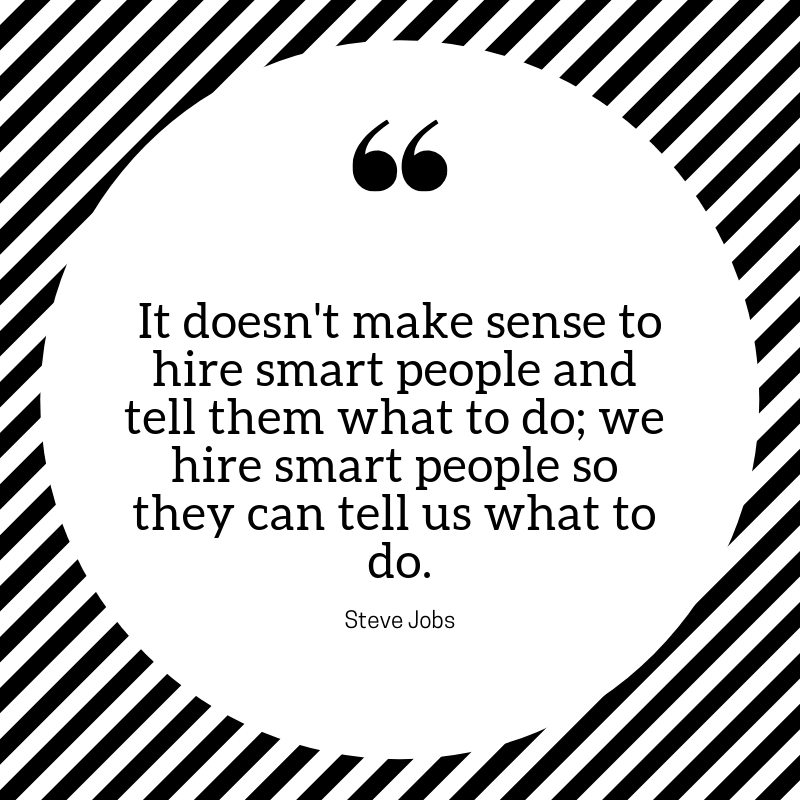Most IC pros will agree that employee voice and two-way engagement between management and staff is crucial to carrying out effective communication. One-way dissemination of information leads to frustration, lack of motivation and disengagement in the workplace. Frustrated employees do not make good brand advocates and yet are often expected to support employers even outside of working hours.
As an employer, you might think you have a handle on your engagement. You might have funky sofas, a pool table in the breakroom and cool branding on your walls – but if your staff aren’t being listened to, the whole picture can and will fall flat. If your people don’t understand where the company is heading and are given no opportunity to contribute towards that journey, how can you expect them to be a strong supporter of what you’re doing?
Defining the EV (Employee Voice)
According to Knight and Haslam (2010), the term ‘employee voice’ describes “organizational processes that enable employees to feel well informed and to have a say about what goes on in their organisation”.
Wilkinson et al. (2004) identify five different employee voice types;
- Communication/exchange of views (the exchange of views between an employee and their manager)
- Upward problem-solving (opportunities for employees to provide feedback and opinions on certain issues affecting the organisation)
- Collective representation (the group mentality)
- Engagement
- A say about issues (overall higher levels of staff involvement)
Undeniably, any organisation depends on its employees and would be unable to operate without them. In an ever-changing business environment, it’s crucial for employers to listen to their staff and be guided by them. No CEO is infallible or sees all – a good leader takes insight from their most valuable resource and reacts accordingly.

Why is EV important?
- Resentment + anger = shut down of creativity. Cut off the opportunity for your staff to actively engage with you, and new, innovative ideas could dry up.
- If employees are not given a safe place to voice grievances, their next port of call – potentially after leaving for greener grass – could well be a public platform. Glassdoor, Google, Facebook, Twitter. What do your company reviews look like? Affording employees the opportunity to air their views before the resentment builds can keep negative commentary off public platforms and will help in building relationships – as it gives you an opportunity to respond.
- Employee voice is increasingly, and rightly, recognised as a contributing factor to external reputation. If your employees are kept informed and consulted, they could well be your first line of defence if a crisis arises.
- CIPD research suggests that a lack of employee voice can lead to feelings of inauthenticity – which could potentially cause long-term psychological damage.
- If your staff decide to look for pastures new, the cost implications can be significant. Replacing lost knowledge and skills, training and settling-in periods all cost money. An engaged workforce stays put for longer.
- EV helps to drive authentic and honest brand values – when values are decided from the top and cascaded down, they will only ever be accepted grudgingly
- An open conversation can provide invaluable feedback on job satisfaction, skills gaps – informing future workplace and succession planning
You’ve got the right channels in place to hold conversations with staff – fantastic. You’ve had some great feedback and the conversation has been flowing – brilliant. What then? As much as this is a good start, don’t fall into the trap of thinking the job is done.
Employees who give opinions which are not listened to can become disengaged very quickly; keep in touch with your staff and provide regular feedback and acknowledgements of topics raised. Can’t do something? Explain why.
One more thing.
If you’re worried about what these conversations might include, don’t be. The likelihood is that any issues which arise from having an open airing of views have already been discussed at length and out of sight of management. Just because you don’t acknowledge them, doesn’t mean they aren’t there.
Sweeping discontent under the carpet doesn’t work and is no good for your people. Seize this as an opportunity to take control of the narrative and be honest with your staff – they’ll thank you for it.